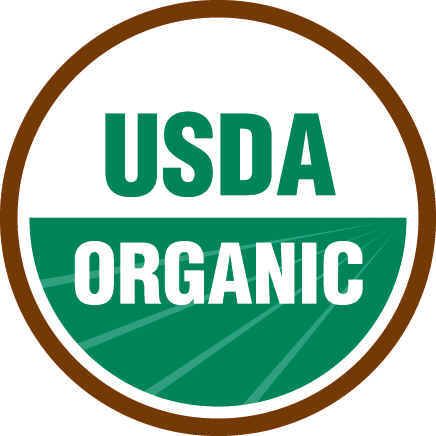Why is milk important for health?
Milk, specifically cow's milk, provides a variety of essential nutrients that your body needs to maintain good health. These nutrients include calcium, vitamin D, vitamin A, and potassium. Milk also contains high-quality protein that helps meet your body's needs.
Health Benefits
A diet with the recommended servings of milk and milk products will help build and maintain bone. This is especially beneficial during childhood and adolescence when the majority of bone is made. In addition, milk may help control blood pressure because of its potassium and calcium content.
Shopping for Milk
Shopping for milk may seem overwhelming due to the wide variety of milk products in the market. You may find that some types of milk meet your needs better than others based on your specific health conditions or preferences.

Credit: 4x6, iStock/Getty Images Plus
Fat Content of Milk
Current recommendations recommend replacing saturated fat with polyunsaturated fats (e.g., fats from nuts, seeds, or most vegetable oils) to reduce risk of heart disease (USDHHS-USDA 2020). Milk contains saturated fat. By choosing low-fat or skim milk, you can receive the nutritional benefits of milk without the excess calories and saturated fat. Table 1 shows the amount of fat in different types of cow's milk. If you prefer the flavor of whole milk to skim milk, try slowly transitioning to lower-fat versions. This may allow you to grow accustomed to the different taste and decrease your daily saturated fat intake.
Animal Milks
Lactose-Free Milk
Some people lack the enzyme needed to digest the milk sugar, lactose. These people may have unpleasant gastrointestinal symptoms after drinking milk. This is known as lactose intolerance. Many people who are unable to digest lactose may be able to consume small amounts of lactose without troubling side effects.
Lactase enzyme may be added to regular milk to predigest the lactose, preventing possibility of gastrointestinal side effects in those with lactose intolerance. Some brands, such as Lactaid®, offer milk products with this enzyme added. Since the lactose in this kind of milk is broken down into smaller sugars, the milk may taste sweeter.
Raw Milk
Raw milk is milk that has not been pasteurized. Pasteurization is a heating procedure used to kill harmful bacteria in dairy products. Raw and pasteurized milk contain the same nutrients, but the bacteria and viruses in raw milk may cause a variety of foodborne illnesses (USDHHS-FDA 2024). This is especially dangerous for people with weakened immune systems.
Organic Milk
Milk may be labeled as organic if the animal is not treated with hormones or medications, is fed only organic feed, and is allowed enough grazing time. If milk is produced according to standards set by the USDA National Organic Program, it will carry the seal shown here (USDA-AMS n.d.):

Credit: USDA-AMS n.d. http://www.ams.usda.gov/nop/
Organic milk has the same nutrient content as regular milk, and production must comply with the same safety standards. There are no known health benefits of drinking organic milk over non-organic milk, but some consumers choose organic milk to avoid consuming milk from cows given growth hormones.
Goat's Milk
Although less popular in the United States, goat's milk is used as an alternative to cow's milk in many countries.
There are no nutritional advantages of goat's milk compared to cow's milk nor is there a lower risk of allergy with goat's milk (Turck 2013). Like cow's milk, goat's milk contains the sugar lactose and may cause digestive upset in people with lactose intolerance.
Goat's milk has a slightly higher fat content than whole cow's milk, with about 10 g of fat per 8 oz glass. If you are looking to lower your saturated fat intake, goat's milk is not a good choice.
Plant-Based Milks
Soy Milk
Rather than using animal products, soy milk is made from soybeans. It may be a healthy alternative to cow's milk for many people. Soymilk contains about the same amount of protein as cow's milk.
Soymilk is safe for people with an allergy to cow's milk because it lacks the protein casein, which is responsible for many allergic reactions (Tsabouri et al. 2014). Soy milk is also lactose-free and is a good source of protein and added calcium for people with lactose intolerance.
Soymilk has no cholesterol and less saturated fat than cow's milk. Soy protein may help decrease blood cholesterol and reduce your risk for heart disease (Blanco Mejia et al. 2019, Jenkins et al. 2019).
For more information about soy milk, see: https://edis.ifas.ufl.edu/publication/FS422.
Rice Milk
Rice milk, another plant-based milk substitute, is made from rice grains. Like soymilk, it is safe for people with a cow's milk allergy and will not cause gastrointestinal symptoms in those with lactose intolerance.
If you drink rice milk as a replacement for cow's milk in your diet, you should be aware that it has a very different nutrient content. With only 2.5 g of fat per cup, rice milk may be a good choice for people looking to decrease their fat intake. However, rice milk is not recommended for infants or young children due to its low protein content (Keller et al. 2012) and may not be the best choice for older adults who need higher protein intakes (Bauer et al. 2013). While normal cow's milk has about 8 grams of protein per cup, rice milk has less than 1 gram per cup.
For more information about rice milk, see: https://edis.ifas.ufl.edu/publication/FS412.
Almond Milk
A more recent plant-based milk substitute is almond milk. Almond milk is a safe alternative for those with cow's milk allergy and has no lactose, so it is well tolerated by those with lactose intolerance. As with rice milk, almond milk is often lower in fat, containing only 2.5 g of fat per cup. However, due to its low protein content of 1 g per cup, almond milk is not recommended as a milk replacement for infants and young children, or older adults who may need higher protein choices to meet their needs.
For more information about almond milk, see: https://edis.ifas.ufl.edu/publication/FS410.
Chocolate Milk
Most milk and milk substitutes come in a chocolate-flavored variety. Chocolate milk generally has more calories and sugar than the plain alternative but still provides the same essential nutrients and health benefits (Murphy et al. 2008, Fayet et al. 2013). Drinking low-fat chocolate milk in appropriate amounts may be a healthy option for children who might otherwise not drink milk.
Be an Informed Shopper
Consuming milk and milk products can provide long-term health benefits, but you should know the facts before you shop. Not all types of milk provide the same amounts of nutrients.
Learn More
Contact your local UF/IFAS Extension Family and Consumer Sciences (FCS) agent for more information and ask about nutrition classes for you to attend. Also, you can receive reliable information from a registered dietitian nutritionist (RDN). If you have concerns about your specific health condition, you should speak to your doctor.
References
Bauer, J., G. Biolo, T. Cederholm, M. Cesari, A. J. Cruz-Jentoft, J. E. Morley, S. Phillips, C. Sieber, P. Stehle, D. Teta, R. Visvanathan, E. Volpi, and Y. Boirie. 2013. "Evidence-based recommendations for optimal dietary protein intake in older people: a position paper from the PROT-AGE Study Group." J Am Med Dir Assoc 14 (8):542–59. doi: 10.1016/j.jamda.2013.05.021.
Blanco Mejia S., M. Messina, S. S. Li, E. Viguiliouk, L. Chiavaroli, T. A. Khan, K. Srichaikul, A. Mirrahimi, J. L. Sievenpiper, P. Kris-Etherton, and D. J. A. Jenkins. 2019. "A meta-analysis of 46 studies identified by the FDA demonstrates that soy protein decreases dirculating LDL and total cholesterol concentrations in adults." The Journal of Nutrition 149 (6):9682–981. doi: 10.1093/jn/nxz020.
Fayet, F., L. A. Ridges, J. K. Wright, and P. Petocz. 2013. "Australian children who drink milk (plain or flavored) have higher milk and micronutrient intakes but similar body mass index to those who do not drink milk." Nutrition Research 33 (2):952–102. https://doi.org/10.1016/j.nutres.2012.12.005.
Jenkins, D. J. A., S. Blanco Mejia, L. Chiavaroli, E. Viguiliouk, S.S. Li, C.W.C. Kendall, V. Vuksan, and J.L. Sievenpiper. 2019. "Cumulative meta-analysis of the soy effect over time." Journal of the American Heart Association 8 (13):e012458. doi:10.1161/JAHA.119.012458.
Keller, M. D., M. Shuker, I. Heimall, and A. Cianferoni. 2012. "Severe malnutrition resulting from use of rice milk in food elimination diets for atopic dermatitis." Israel Medical Association Journal 14 (1):40.
Murphy, M. M., J. S. Douglass, R. K. Johnson, and L. A. Spence. 2008. "Drinking flavored or plain milk is positively associated with nutrient intake and is not associated with adverse effects on weight status in US children and adolescents." Journal of the American Dietetic Association 108 (4):6312–639. https://doi.org/10.1016/j.jada.2008.01.004.
Tsabouri, Sophia, Kostas Douros, and Kostas N. Priftis. 2014. "Cow's milk allergenicity." Endocrine, Metabolic & Immune Disorders-Drug Targets (Formerly Current Drug Targets-Immune, Endocrine & Metabolic Disorders) 14 (1):162–26.
Turck D. "Cow's milk and goat's milk." World Rev Nutr Diet. 2013;108:562–62. doi: 10.1159/000351485.
U.S. Department of Agriculture: Organic Labeling. n.d. https://www.ams.usda.gov/rules-regulations/organic/labeling
U.S. Department of Agriculture and U.S. Department of Health and Human Services. Dietary Guidelines for Americans, 2020-2025. 9th Edition. December 2020. Available at DietaryGuidelines.gov.
U.S. Department of Health and Human Services. Food and Drug Administration. 2024. The dangers of raw milk: Unpasteurized milk can pose a serious health risk. http://www.fda.gov/Food/ResourcesForYou/Consumers/ucm079516.htm